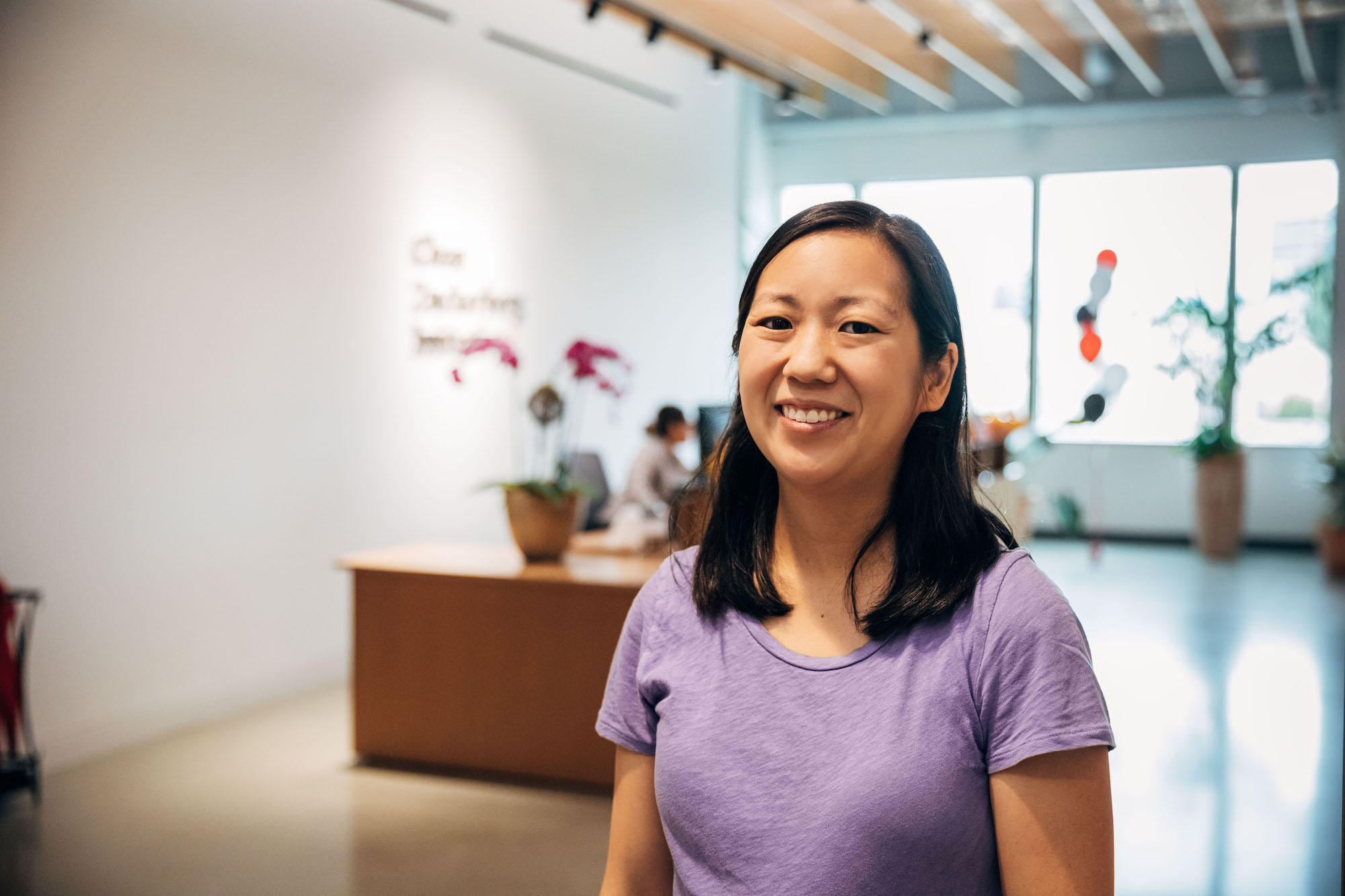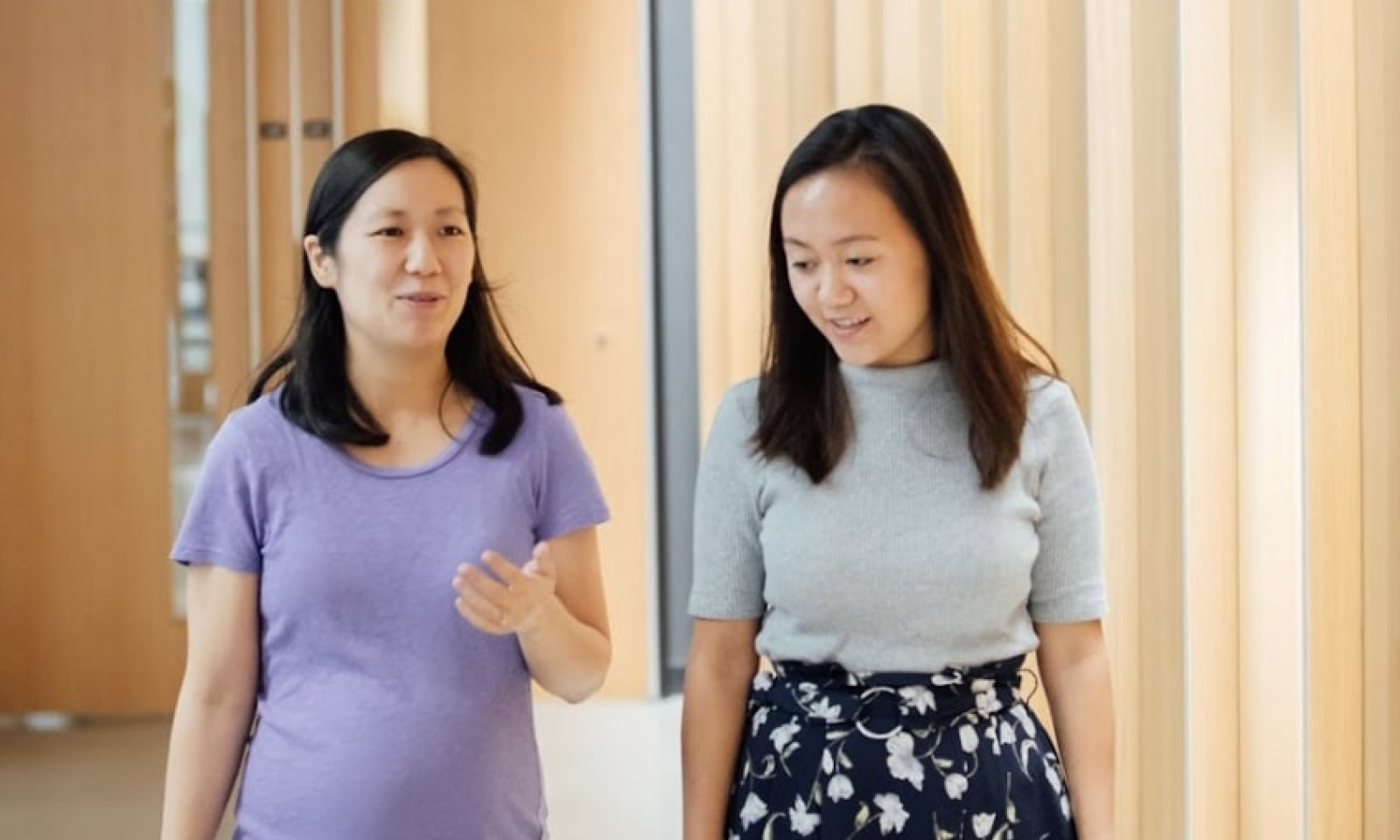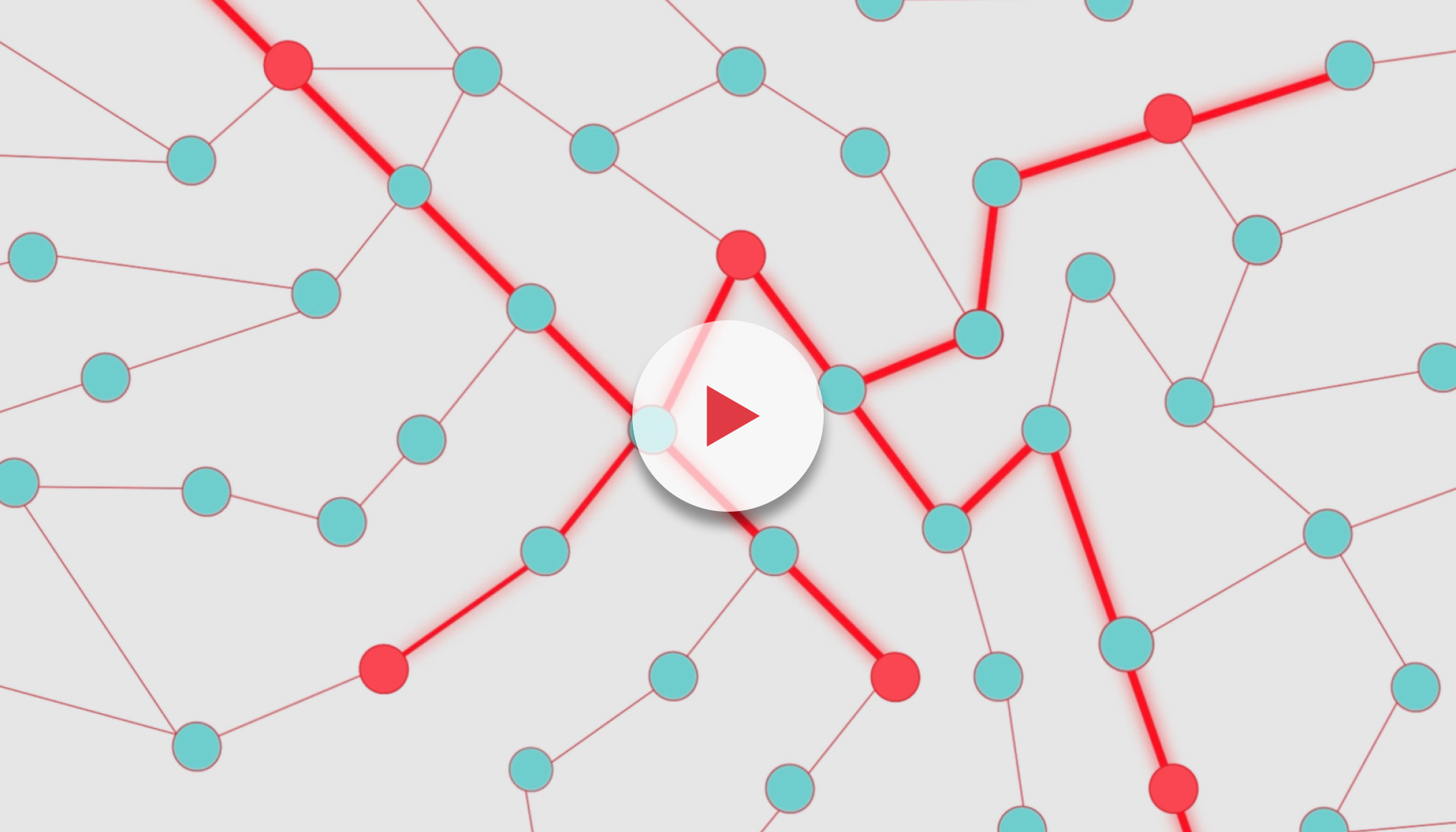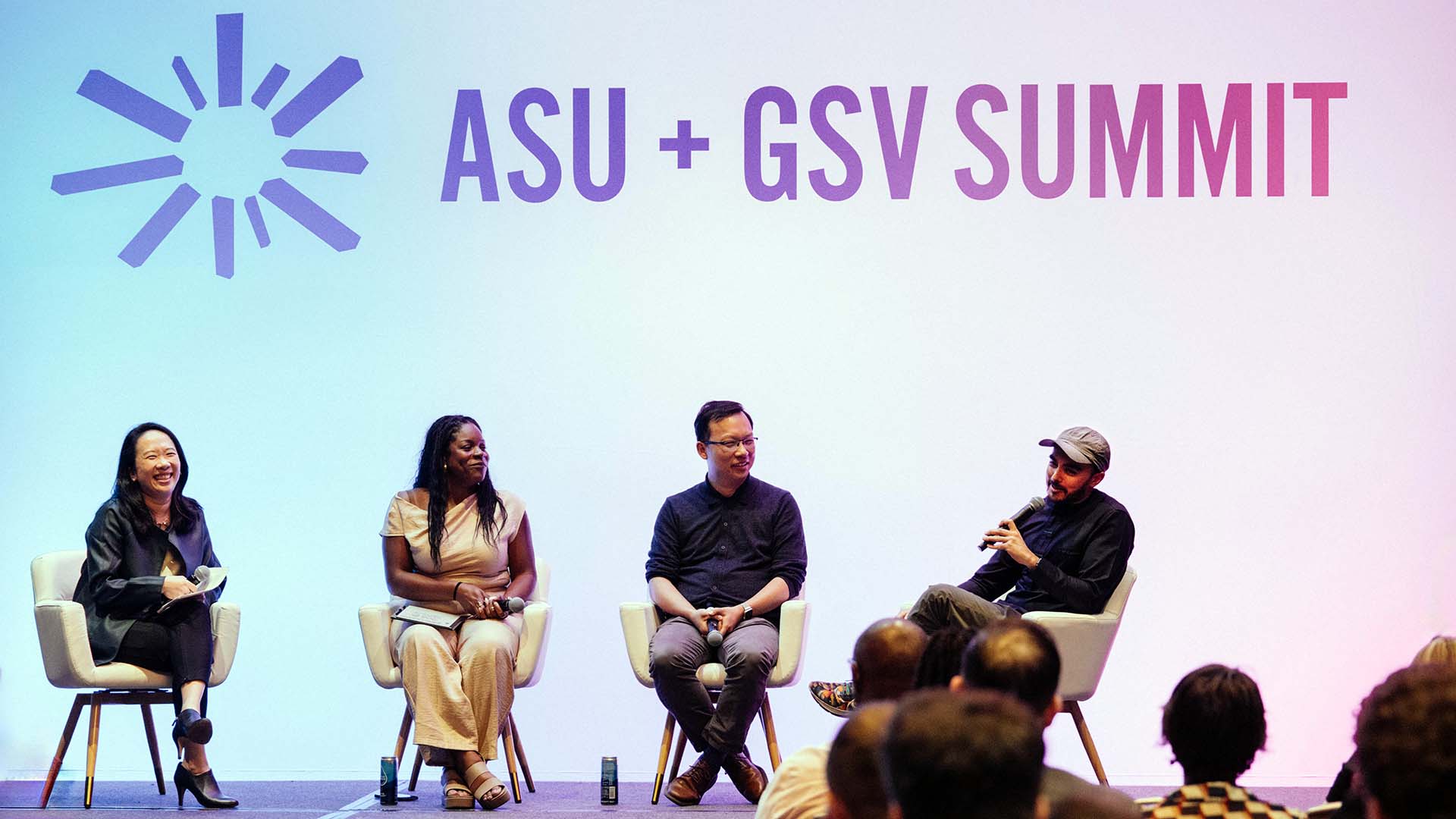Dec 2, 2019 · 13 min read
5 Reasons To Become an EdTech Engineer: Q&A with Kari Lee

Technology is everywhere around us. And it’s constantly evolving. With services that deliver dinner to your door or connect you to a rideshare in just a few taps (and virtually everything in between), engineers are building tools that aim to improve our everyday lives.
We do that here, too, in collaboration with our partners who bring different viewpoints, expertise, and ideas to the table. Across the Chan Zuckerberg Initiative’s three core focus areas — science, education, and justice & opportunity — we pair engineering with grantmaking, impact investing, policy work, and advocacy to help accelerate the pace of social progress. Our engineers have diverse backgrounds and experiences and join us with the shared mission to help build a future for everyone.
More specifically, CZI’s education team works to ensure that every student — not just a lucky few — gets an education that’s tailored to their individual needs and supports every aspect of their development and that every teacher is equipped with the tools and research they need to help get them there. Kari Lee, education’s Engineering Director, leads a team of 35 (and growing) engineers who work on the technology platform that supports the Summit Learning Program.
Summit Learning, which serves more than 4,000 teachers and 86,000 students nationwide, is a researched-based approach to teaching and learning designed to drive student engagement, strong student-teacher relationships, and meaningful learning. Summit Learning provides teachers with comprehensive tools and resources to ensure that every student is motivated and supported to reach his or her potential — both within the classroom and beyond. As a result, teachers are equipped to make their classrooms a place where every student truly wants to be.
Meet Kari and learn more about CZI’s engineering opportunities on the education team.
You came to CZI from a large for-profit tech company. What inspired you to want to come lead an EdTech engineering team at a philanthropy?
If you really want to do good in the world, you can go get a high-paying job and donate a bunch of money or you can find an organization like CZI where your job is actually the thing that’s contributing to the good in the world.
I came to CZI because the opportunity to work on a product that has a chance of changing the lives of hundreds of thousands of students was something that I couldn’t pass up. People in tech feel like they’re making a positive difference in the world, which I think is true in a lot of cases. Engineers have opportunities to make people’s lives easier and better, but that’s not the same level of impact as providing real-time information on how students are progressing so that they have a better chance of living up to their full potential. We’re trying to make sure that kids are prepared for life, not just the next standardized test.
We’ve seen a lot of attempts to reform education over the last century, but much of it has been pretty narrow and often doesn’t have that much impact outside of the school or classroom implementing the change. We’re really trying to partner with educators to enact long-lasting, systemic change.
What engineering and technical challenges do you and your team get to work on?
One of the challenges is building a product that has the capacity to help improve the relationship between teachers and students. This tool needs to also provide parents, school leaders, district leaders, and the community with the right information to fully support each student. And it needs to do it in a way that’s efficient, private, and secure.
As you can imagine, this is a product that’s pretty core to someone’s day-to-day life experience, so the standards for quality need to be higher than in many consumer tech products. We focus on reliability, performance, and scalability — things that actually make a huge difference in students’ and teachers’ lives.
We’re not operating at the scale of the biggest tech companies, but there’s a lot of interesting tech challenges in how we’re growing and figuring out the appropriate level of investment for the team at any given point in time. There’s still a lot that we haven’t figured out yet, so we need to invest in building the appropriate product infrastructure like a design system that allows us to iterate quickly and safely. There are still a lot of big decisions to be made, and a lot of room for any individual engineer to shape how the team develops. Knowing that we’re not just like any other startup, where you have to make short-term trade-offs because of limited funding, allows us to plan and build for the long term.
You and your team build tech solutions that are directly informed by teachers and students. Do engineers spend time in schools?
All members of our team, including engineers, spend as much time in schools as is logistically and feasibly possible because we believe it’s important for the work that we do. This usually involves tagging along on a visit with a user researcher or school success manager. Our engineers also have the opportunity to participate in the in-person teacher training conferences several times a year. There are schools all over the country, and so it does require some travel sometimes, but it’s a great opportunity to understand the impact of our work and incorporate feedback from users.
How are teachers and students represented in your work, and why is this collaboration so important?
One of our core values is to stay close to the work. And the fundamental premise of CZI overall is that we pair technology folks — people who know how to build technology and products — with domain experts. We collaborate daily with educators who help provide a lot of that on-the-ground input and experience as well as with academics who focus on learning science and development and how to incorporate those principles into the classroom.
We also embed an instructional specialist — usually a former teacher on the curriculum, professional development, or school and district success team — into every working group to make sure the products that we’re building are fully aligned. These experts represent the pedagogy of what we’d like to see happen in the classroom and the behaviors we want to encourage.
Tell us about a feature that your team built for the Summit Learning Platform. What’s the impact?
As part of Summit Learning, students have regular one-on-one meetings with an adult at their school. We built a tool to better support that mentoring experience so those conversations are as rich and as helpful as possible. We want students and mentors to spend less time focused on scheduling and status updates and more time on developing a strong relationship and better understanding of students’ long-term goals and short-term challenges to help coach them appropriately.
Another feature that we built, called Notebooks, houses student work and provides richer interactions for teachers to give structured feedback so that students can develop the critical-thinking skills the project is designed around. The focus is on continuous feedback rather than a single final grade. To better support this, we built our own custom text editor, which replaces some of the Google Docs and Microsoft OneDrive integration experience. It sounds crazy, I know. [laughs] But there are a lot of reasons for doing it. By owning the full experience, Notebooks gives us the underlying infrastructure to build a learning environment that we can keep building upon as we better understand what kind of feedback is most effective. Other benefits include being able to embed interactive widgets to reinforce learning and removing a lot of distractions so that kids can focus on the content of their work instead of getting distracted with superficial things like font choices.
How is your work directly impacting CZI’s mission to ensure every child, not just a lucky few, receives an education that allows them to reach their full potential?
We know we’re making a difference in students’ and teachers’ lives because of the feedback that we get. Teachers tell us they were ready to retire, but now they’re energized and re-engaged because Summit Learning allows them to connect with their students and do all the things that they’ve always wanted to do as a teacher. They also tell us that their students are much more invested in their work and have a stronger sense of ownership. We even had teachers tell us that the real teaching starts to happen when kids feel like they’re being cared about.
OK, so let’s talk nuts and bolts. What languages, tools, systems, and integrations do CZI engineers use?
It’s a pretty standard tech stack. We have a React frontend with a Ruby on Rails server and Postgres database. We also use AWS and Heroku for hosting, CircleCI for continuous integration, and a bunch of other tools for logging, dashboards, and data analysis.
How do engineers interact and collaborate with data, product, and design teams?
We don’t believe in a development model where engineers are just handed specs and told to just build them. We work in cross-functional groups with a product manager, designer, user researcher, data scientist, product specialist, instructional designer, and engineering. Together as a group, in partnership with academics and teachers, they figure out what problems they need to solve and how to solve them. Having that engineering technical input early in the product design process helps build better products and encourages more collaboration as we iterate.
What are some of the unique opportunities engineers can access here?
We offer a lot of great benefits that have become more standard in the tech industry [like free lunches; four months of parental leave; commuter benefits; paid time off; fully covered health, vision, and dental insurance; salaries that are more comparable to the tech industry than nonprofits; and more]. We’re a very family-friendly environment, since it’s natural for people to take a step back and want to find more purpose in their work once they start having kids. And we really believe in work-life balance. One of the advantages of working on a school product is that it’s not used much during off-hours, so we actually get real breaks. We also have regular no-meeting Wednesdays, which a lot of folks use as an opportunity to work from home.
I think CZI helps provide that balance of continuing to work in ways that cater to your career and allow you to apply the skills that you developed in a context for social good. For me personally, it’s been a really great opportunity to learn a lot more about the education industry and about learning science principles. I think I’ve actually become a better parent with all the tactics I’ve learned! [laughs]
We also have a lot of interesting speakers coming in for all of the initiatives, so I’ve learned a lot about cool projects happening in science and public policy, too. And I don’t want to understate the opportunity to partner with teachers and academics to help solve some of the toughest challenges facing students and teachers today.

How about professional development?
We believe very strongly that it’s important for people to continue learning and developing both their technical and non-technical skills. Every employee at CZI has a standard professional development budget. In addition to that, we have this principle that you should be growing through your work.
Our Learning Science team has done a series of Learning Science Workshops to help people better understand the principles of learning science so we can be better product partners in development. We’ve also done things like bring in experts to run workshops for accessibility or for privacy and security. Another way for engineers to grow is through code review and writing proposed tech specs, because I think that that’s one of the best ways to receive useful feedback on your work, spread knowledge, and have meaningful architectural discussions. People will occasionally code pair together, especially with newer folks on the team who want to be able to see some of the tips and tricks that other engineers have picked up over the years. And when a new engineer joins the team, they get assigned a mentor and a buddy to make sure that they’re ramping up well, in addition to the support that we expect their manager to be giving them directly.
There’s no shortage of engineering roles in the Bay Area and around the country. What makes this place so special, and why should engineers consider CZI as part of their career journey?
CZI is a unique confluence of doing tech work that you care about and are excited by, learning a new domain, and having a chance to make a real impact in the world.
Plus, there aren’t many tech jobs that allow you to deeply interact with education, research, science, and justice experts. One of the great parts about working on a team of engineers, who have chosen to work in education, is that everyone is actually super passionate about education — learning, teaching, and growing. When folks join the team, they’re often surprised by how easy it is to ask questions. My response is always, “How else would it work?” Our team really cares about mentorship because it’s fundamental to the work that we do.
We’ve also been deliberately working to make sure that our team culture is much more diverse and inclusive than you’d find in most of tech. There’s a natural influence that comes with deeply collaborating with domain experts from very different backgrounds, but we’re also very intentional in growing our tech team to include more people from diverse backgrounds because we strongly believe that it will help us build a better product that works for more people. I spend a lot of my time thinking about team culture and how we can be more inclusive. Honestly, I’ve never worked on a team that’s spent as much time as we do talking about feelings and thinking critically about how we engage with each other so we can keep getting better.
Ready to join our team? Apply for your dream engineering job.





